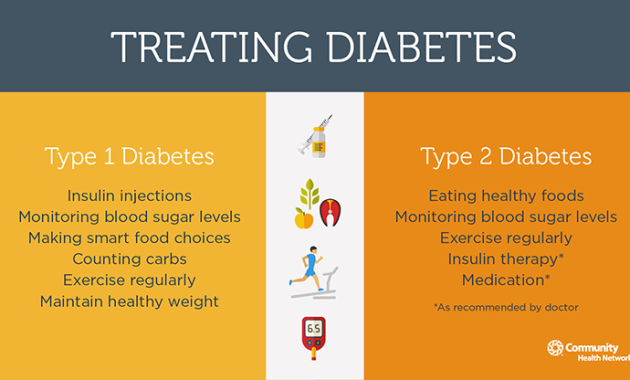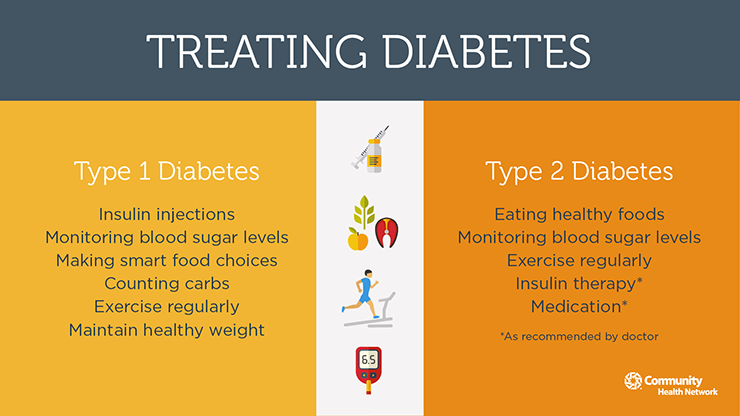
How to Stop Diabetes Before It Damages Your Health: A Proactive Guide
Diabetes, a chronic metabolic disorder, has become a global health crisis. Millions worldwide grapple with its effects. It is a condition where the body either doesn’t produce enough insulin or can’t effectively use the insulin it produces. This leads to high blood sugar levels. Left unchecked, diabetes can inflict significant damage on various organs. This includes the heart, kidneys, eyes, and nerves. However, there is good news. You can take decisive steps to prevent or delay the onset of type 2 diabetes. This guide offers a comprehensive overview of how to stop diabetes before it damages your health.
Understanding the Threat: The Impact of Diabetes
Before delving into prevention, it is crucial to understand the severity of diabetes. The disease isn’t just about elevated blood sugar. It is a systemic illness. High blood sugar can wreak havoc on the body. It damages blood vessels and nerves. This damage can lead to several serious complications. These complications include heart disease, stroke, kidney failure, blindness, and nerve damage (neuropathy). These complications highlight the importance of understanding how to stop diabetes before it damages your health.
The two main types of diabetes are type 1 and type 2. Type 1 diabetes is an autoimmune disease. The body attacks and destroys the insulin-producing cells in the pancreas. Type 2 diabetes is far more common. It is often associated with lifestyle factors. These factors include obesity, lack of physical activity, and unhealthy eating habits. Prediabetes is a condition where blood sugar levels are higher than normal but not high enough to be diagnosed as diabetes. Prediabetes is a significant risk factor for developing type 2 diabetes. Knowing how to stop diabetes before it damages your health is especially important in the prediabetic stage.
Identifying Risk Factors: Who is Most Vulnerable?
Certain factors increase your risk of developing diabetes. Recognizing these risk factors is the first step towards prevention. Family history is a significant factor. If you have a parent or sibling with diabetes, your risk is higher. Age is another factor. The risk of type 2 diabetes increases as you get older. Being overweight or obese is a major risk factor. Excess weight can lead to insulin resistance. This is a condition where the body’s cells don’t respond properly to insulin. Physical inactivity also increases your risk. Regular exercise helps improve insulin sensitivity. Race and ethnicity also play a role. Certain ethnic groups, such as African Americans, Hispanic Americans, Native Americans, and Asian Americans, have a higher risk. Other risk factors include a history of gestational diabetes (diabetes during pregnancy) and polycystic ovary syndrome (PCOS).
Dietary Strategies: Fueling Your Body for Prevention
Diet plays a crucial role in preventing diabetes. Making smart food choices can significantly reduce your risk. Focus on a balanced diet rich in whole foods. This includes fruits, vegetables, whole grains, and lean proteins. Limit your intake of processed foods, sugary drinks, and unhealthy fats. These foods can contribute to weight gain and insulin resistance. Fiber is your friend. Fiber slows down the absorption of sugar, preventing blood sugar spikes. Choose fiber-rich foods like whole grains, beans, and vegetables. Control portion sizes. Overeating can lead to weight gain. This increases your risk of diabetes. Drink plenty of water. Water helps with overall health and can help you feel full. This can reduce your calorie intake. Reading food labels is essential. Pay attention to serving sizes, calories, and added sugars. Knowing how to stop diabetes before it damages your health involves making informed dietary choices.
Here are some specific dietary recommendations:
- Choose whole grains: Opt for brown rice, quinoa, and whole-wheat bread instead of refined grains.
- Eat plenty of fruits and vegetables: Aim for at least five servings per day.
- Limit added sugars: Avoid sugary drinks, candy, and processed snacks.
- Choose healthy fats: Include foods like avocados, nuts, and olive oil in your diet.
- Eat lean protein: Choose fish, poultry, beans, and tofu over red meat.
Exercise and Physical Activity: Moving Towards a Healthier Future
Regular physical activity is a powerful tool in preventing diabetes. Exercise helps improve insulin sensitivity. It also helps with weight management. Aim for at least 150 minutes of moderate-intensity exercise per week. This could include brisk walking, cycling, or swimming. If you are able, engage in vigorous-intensity exercise for at least 75 minutes per week. This could include running or high-intensity interval training (HIIT). Incorporate strength training exercises at least twice a week. This builds muscle mass. Muscle helps improve insulin sensitivity. Find activities you enjoy. This will make it easier to stick to your exercise routine. Even small changes can make a difference. Taking the stairs instead of the elevator or walking during your lunch break can help.
Weight Management: Achieving and Maintaining a Healthy Weight
Maintaining a healthy weight is one of the most effective ways to prevent diabetes. If you are overweight or obese, losing even a small amount of weight can significantly reduce your risk. A weight loss of 5-7% of your body weight can make a big difference. Focus on sustainable lifestyle changes. Crash diets are often ineffective and can be harmful. Set realistic goals. Aim for a gradual weight loss of 1-2 pounds per week. Combine diet and exercise. This is the most effective approach to weight management. Seek professional help if needed. A registered dietitian or certified personal trainer can provide guidance and support.
Stress Management: Protecting Your Body from the Effects of Stress
Chronic stress can contribute to insulin resistance and increase your risk of diabetes. Finding healthy ways to manage stress is crucial. Practice relaxation techniques. This includes deep breathing, meditation, or yoga. Get enough sleep. Aim for 7-9 hours of sleep per night. Sleep deprivation can worsen insulin resistance. Engage in activities you enjoy. This could include hobbies, spending time with loved ones, or listening to music. Seek support from friends, family, or a therapist if needed. Learning how to stop diabetes before it damages your health includes managing stress effectively.
Regular Health Screenings: Early Detection is Key
Regular health screenings are essential for early detection. Early detection of prediabetes or diabetes allows for timely intervention. Talk to your doctor about your risk factors and the appropriate screening tests. The American Diabetes Association recommends that adults over 45 get screened for diabetes every three years. If you have risk factors, your doctor may recommend earlier and more frequent screenings. Screening typically involves a blood test to measure your blood sugar levels. This could be a fasting blood glucose test, an A1C test, or an oral glucose tolerance test. Knowing how to stop diabetes before it damages your health involves proactive health management.
Medication and Other Interventions: When to Seek Professional Help
In some cases, lifestyle changes alone may not be enough to prevent diabetes. Your doctor may recommend medication or other interventions. Metformin is a common medication used to treat prediabetes and type 2 diabetes. It helps improve insulin sensitivity. Other medications may be used to manage blood sugar levels. These medications may include sulfonylureas or thiazolidinediones. Your doctor may also recommend other interventions. This includes weight-loss surgery for individuals with severe obesity. Always follow your doctor’s recommendations. Adhere to your prescribed medication regimen and lifestyle changes. This is essential for managing your condition.
The Importance of Education and Support: Empowering Yourself
Education and support are critical components of diabetes prevention. Learn as much as you can about diabetes. Understand your risk factors, symptoms, and treatment options. Join a diabetes support group. This can provide emotional support and practical advice. Work with a healthcare team. This includes your doctor, a registered dietitian, and a certified diabetes educator. They can help you develop a personalized plan. Stay informed about the latest research and advancements in diabetes prevention. Knowledge is power when it comes to taking control of your health. Knowing how to stop diabetes before it damages your health means constantly learning and adapting.
Lifestyle Changes: The Cornerstone of Prevention
The core of how to stop diabetes before it damages your health lies in lifestyle changes. These changes are the most powerful tools. They are more effective than any medication. Make sustainable dietary changes. Focus on whole, unprocessed foods. Engage in regular physical activity. Aim for at least 150 minutes of moderate-intensity exercise per week. Manage your weight. Maintain a healthy weight through diet and exercise. Manage stress. Find healthy ways to cope with stress. Get regular health screenings. This allows for early detection and intervention. By embracing these lifestyle changes, you can significantly reduce your risk of developing diabetes. You can also improve your overall health and well-being.
In conclusion, preventing diabetes is within your reach. By understanding your risk factors, making healthy lifestyle choices, and seeking professional guidance when needed, you can take control of your health. Implement these strategies. Learn how to stop diabetes before it damages your health. Take proactive steps today. You can safeguard your health and live a long, vibrant life. Remember that prevention is always better than cure. Make the commitment. Start your journey toward a healthier future. [See also: Related Article Titles]

